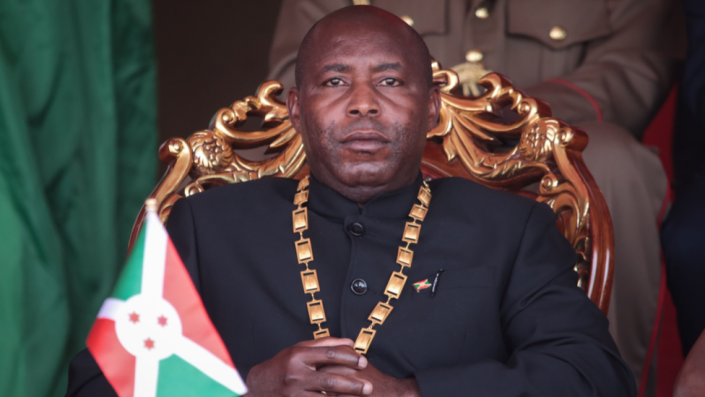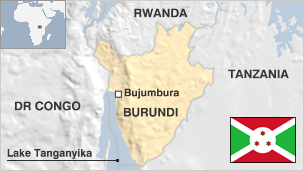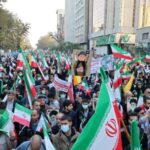
Burundi, one of the world’s poorest nations, is struggling to emerge from a 12-year, ethnic-based civil war.
Since independence in 1962 it has been plagued by tension between the usually-dominant Tutsi minority and the Hutu majority.
A civil war, sparked off in 1994 made Burundi the scene of one of Africa’s most intractable conflicts.
Read more country profiles – Profiles compiled by BBC Monitoring
President: Evariste Ndayishimiye


Evariste Ndayishimiye took office in June 2020, a week after President Pierre Nkurunziza died suddenly in the midst of the Covid-19 pandemic.
Mr Ndayishimiye had won the May presidential election, and was due to take office in August.
The opposition condemned the election, in which Mr Ndayishimiye had the backing of his fellow former Hutu rebel leader Pierre Nkurunziza, as rigged. Mr Nkurunziza was the first president to be chosen in democratic elections since the start of Burundi’s civil war in 1994.


State-run outlets dominate the media. Journalists operate under strict press laws and face harassment.
Many privately-owned radio stations were shut after a 2015 coup attempt and most remain closed. Local relays of the BBC and Voice of America have been suspended.
Some key dates in Burundi’s history:
1890 – The kingdoms of Urundi and neighbouring Ruanda (Rwanda) incorporated into German East Africa.
1916 – Belgian army occupies the area, which later becomes a Belgian protectorate.
1962 – Urundi is separated from Ruanda-Urundi and becomes independent.
1993-94 – Ethnic conflict escalates into full-scale civil war.
2006 – The last major rebel group, the Forces for National Liberation (FNL), and the government sign a ceasefire.
2015 – Unrest sparked by President Nkurunziza’s plans to stand for third term.
2020 – Former Hutu rebel leader Evariste Ndayishimiye takes office after President Nkurunziza dies during the Covid-19 pandemic.




